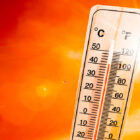
Florida Statutes provide boards with broad emergency powers in response to damage, injury or public contagion caused by or anticipated in connection with an emergency for which “a state of emergency” is declared. The Governor of the State of Florida must have declared a “state of emergency” in order for an association to utilize the statutorily prescribed emergency powers. The specific Statutory provisions regarding the emergency powers can be found in section 718.1265 Florida Statutes for condominium associations, section 720.316 Florida Statutes for homeowners’ associations, and section 719.128 Florida Statutes for cooperative associations. While each version of these emergency powers is very similar, there are a few subtle differences which are discussed below. It is important to note that when exercising emergency powers, there should be a rational relationship between the action undertaken and the disaster itself and that emergency powers may not be exercised unless and until the statutory trigger has occurred.
Emergency Powers for Condominium Associations
Section 718.1265 of the Florida Condominium Act provides as follows:
718.1265 Association emergency powers.—
- To the extent allowed by law, unless specifically prohibited by the declaration of condominium, the articles, or the bylaws of an association, and consistent with s. 617.0830, the board of administration, in response to damage or injury caused by or anticipated in connection with an emergency, as defined in s. 252.34(4), for which a state of emergency is declared pursuant to s. 252.36 in the locale in which the condominium is located, may exercise the following powers:
-
- Conduct board meetings, committee meetings, elections, and membership meetings, in whole or in part, by telephone, real-time videoconferencing, or similar real-time electronic or video communication with notice given as is practicable. Such notice may be given in any practicable manner, including publication, radio, United States mail, the Internet, electronic transmission, public service announcements, and conspicuous posting on the condominium property or association property or any other means the board deems reasonable under the circumstances. Notice of decisions also may be communicated as provided in this paragraph.
- Cancel and reschedule any association meeting.
- Name as assistant officers persons who are not directors, which assistant officers shall have the same authority as the executive officers to whom they are assistants during the state of emergency to accommodate the incapacity or unavailability of any officer of the association.
- Relocate the association’s principal office or designate alternative principal offices.
- Enter into agreements with local counties and municipalities to assist counties and municipalities with debris removal.
- Implement a disaster plan or an emergency plan before, during, or following the event for which a state of emergency is declared which may include, but is not limited to, shutting down or off elevators; electricity; water, sewer, or security systems; or air conditioners.
- Based upon advice of emergency management officials or public health officials, or upon the advice of licensed professionals retained by or otherwise available to the board, determine any portion of the condominium property or association property unavailable for entry or occupancy by unit owners, family members, tenants, guests, agents, or invitees to protect the health, safety, or welfare of such persons.
- Require the evacuation of the condominium property in the event of a mandatory evacuation order in the locale in which the condominium is located. Should any unit owner or other occupant of a condominium fail or refuse to evacuate the condominium property or association property where the board has required evacuation, the association shall be immune from liability or injury to persons or property arising from such failure or refusal.
- Based upon advice of emergency management officials or public health officials, or upon the advice of licensed professionals retained by or otherwise available to the board, determine whether the condominium property, association property, or any portion thereof can be safely inhabited, accessed, or occupied. However, such determination is not conclusive as to any determination of habitability pursuant to the declaration.
- Mitigate further damage, injury, or contagion, including taking action to contract for the removal of debris and to prevent or mitigate the spread of fungus or contagion, including, but not limited to, mold or mildew, by removing and disposing of wet drywall, insulation, carpet, cabinetry, or other fixtures on or within the condominium property, even if the unit owner is obligated by the declaration or law to insure or replace those fixtures and to remove personal property from a unit.
- Contract, on behalf of any unit owner or owners, for items or services for which the owners are otherwise individually responsible, but which are necessary to prevent further injury, contagion, or damage to the condominium property or association property. In such event, the unit owner or owners on whose behalf the board has contracted are responsible for reimbursing the association for the actual costs of the items or services, and the association may use its lien authority provided by s. 718.116 to enforce collection of the charges. Without limitation, such items or services may include the drying of units, the boarding of broken windows or doors, the replacement of damaged air conditioners or air handlers to provide climate control in the units or other portions of the property, and the sanitizing of the condominium property or association property, as applicable.
- Regardless of any provision to the contrary and even if such authority does not specifically appear in the declaration of condominium, articles, or bylaws of the association, levy special assessments without a vote of the owners.
- Without unit owners’ approval, borrow money and pledge association assets as collateral to fund emergency repairs and carry out the duties of the association when operating funds are insufficient. This paragraph does not limit the general authority of the association to borrow money, subject to such restrictions as are contained in the declaration of condominium, articles, or bylaws of the association.
-
- The special powers authorized under subsection (1) shall be limited to that time reasonably necessary to protect the health, safety, and welfare of the association and the unit owners and the unit owners’ family members, tenants, guests, agents, or invitees and shall be reasonably necessary to mitigate further damage, injury, or contagion and make emergency repairs.
- Notwithstanding paragraphs (1)(f)-(i), during a state of emergency declared by executive order or proclamation of the Governor pursuant to s. 252.36, an association may not prohibit unit owners, tenants, guests, agents, or invitees of a unit owner from accessing the unit and the common elements and limited common elements appurtenant thereto for the purposes of ingress to and egress from the unit and when access is necessary in connection with:
-
- The sale, lease, or other transfer of title of a unit; or
- The habitability of the unit or for the health and safety of such person unless a governmental order or determination, or a public health directive from the Centers for Disease Control and Prevention, has been issued prohibiting such access to the unit. Any such access is subject to reasonable restrictions adopted by the association.
-
As stated above, under the Emergency Powers provision, a condominium may implement a disaster plan before, during, or following the emergency event which may include shutting off elevators, electricity, water, sewer, security systems, and air conditioners. Many condominium associations suspend the operation and use of these items in an effort to protect these systems which may become damaged or compromised during an emergency event.
Associations are often concerned with the personal injury aspect of these items used during an emergency situation and take action to prevent these injuries from occurring or residents getting stuck in an elevator. As such, the association should ensure that the residents who decide to stay in their unit during the disaster event are properly notified of the suspended operation of any services and provide a warning that those residents should be prepared to go without these services in advance of the disaster and for the next few days after the disaster. Residents who choose to remain in the building after such notification do so at their own risk.
The Condominium Statute also authorizes a condominium association to require the evacuation of the condominium property in the event of a mandatory evacuation order being issued for the association’s local area. If residents refuse to leave, the association becomes immune from liability or injury to persons or property that may arise from the resident’s failure or refusal to evacuate.
Additionally, Florida law permits a condominium association’s Board of Directors, upon the advice of licensed professionals, emergency management officials or public health officials to determine any portion of the condominium property, including units, unavailable for entry or occupancy by unit owners, their family, tenants and guests to protect their health, safety, or welfare. This restriction of access to condominium property can extend well beyond the disaster as remediation efforts are often delayed due to labor and material shortages immediately following a disaster. Oddly, the emergency powers were amended to prohibit boards from denying realtors and their client’s access to property if such access is needed to facilitate a transfer of the property.
As the implications of implementing a disaster plan can have a substantial impact on the association’s residents, condominium boards that are considering adopting a disaster plan should consult with their association’s attorney to ensure they adopt a plan that works for their community and complies with both the governing documents and Florida law.
Emergency Powers for Homeowners’ Associations
Like condominium associations, Section 720.316, Florida Statutes, provides homeowners’ association boards with broad emergency powers in response to damage or injury caused by or anticipated in connection with an emergency for which a state of emergency is declared. The emergency powers homeowners’ association boards may exercise substantially mirrors the powers provided to condominium boards discussed above with two exceptions.
Firstly, homeowners’ associations do not have the power to require evacuation of the property. Secondly, homeowners’ associations do not have the power to contract on behalf of owners for items for which owners are otherwise individually responsible.
Also, just as with condominium associations, homeowners’ association boards cannot exercise powers which are specifically prohibited by the declaration or other recorded governing documents.
Emergency Powers for Cooperative Associations
Section 719.128, Florida Statute mirrors exactly the emergency powers provided to condominium board in 718.1265, Florida Statute. Hence, the same application discussed above under emergency powers for condominium associations will apply to cooperative associations.






Recent Comments